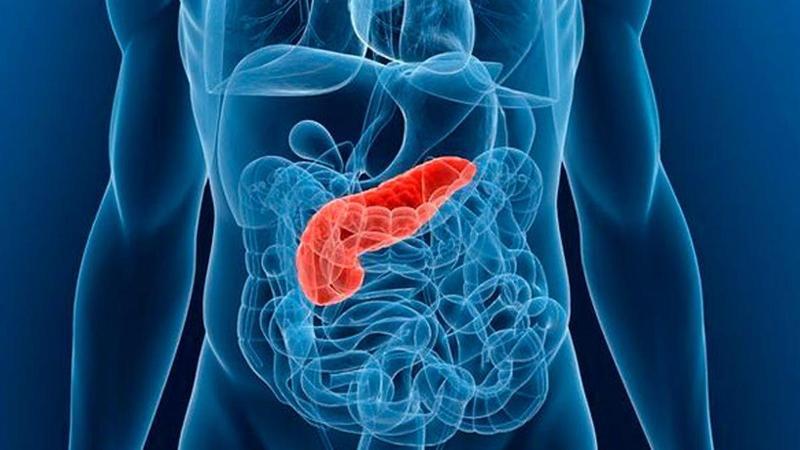5 Steps to Lower Your Risk Of Pancreatitis
5 Steps to Lower Your Risk Of Pancreatitis
Follow the five steps to improve the work of your pancreas and lower your chances to get EPI (or exocrine pancreatic insufficiency).
The pancreas plays an important role in our body functioning, and even though there are lots of things you could live without, your pancreas is an exception.
The shape of the organ resembles everything from a pear to a bulb or a tadpole. It is located behind the stomach, with gallbladder, liver, and spleen as its neighbors — so it is not surprising if you can't imagine what it looks like or are not quite sure what it does.
The pancreas is a vital organ responsible for the production of many enzymes essential for food digestion. It makes secretive hormones, such as insulin to regulate sugar levels and metabolism.
Pancreatitis is a term that describes an inflammation of the gland. Fortunately, if you make a few changes in your lifestyle, you will have a good chance to avoid pancreatitis attacks. But first, let's look into a description of what pancreatitis is and how it can lead to EPI.
Pancreatitis explained
Pancreatitis is described as a condition when the pancreas becomes inflamed. Due to the inflammation, the digestive enzymes that usually are only active in the guts start attacking the pancreas itself. It may not only cause a lot of pain but, at the same time, it can disrupt your digestion and stop food from being broken down properly. Among the symptoms, there is nausea, upper abdominal pain, vomiting, bloating, fever, and diarrhea.
If you have pancreatitis, your body can have problems with nutrient absorption that can result in significant nutritional deficit and weight loss.
In the case of acute pancreatitis, it can resolve without consequence, although a small percentage of acute pancreatitis can be life-threatening. Chronic pancreatitis, to the contrary, is continuous inflammation that causes repeated injury to the tissue that irreversibly damages the normal function of the pancreas.
What Causes Pancreatitis
If acute pancreatitis occurs, there are usually two common causes: gallbladder disorder such as gallstones and heavy alcohol use.
Gallstones are pebbles made of thick bile. Their movements can cause acute pancreatitis as they can block the pancreas’ opening, disrupting the usual function of digestive enzymes.
Heavy drinking may trigger acute pancreatitis. A person can get the first symptoms after a few hours or up to two days after the alcohol consumption. There are less common causes such as:
- Congenital disorders of the pancreas
- Viral infection (mumps, coxsackie B)
- Traumatic injury of the pancreas
- Cystic fibrosis
- Various drugs (e.g., estrogen, azathioprine, tetracycline)
- Hormonal abnormalities
- High fat and calcium levels
Alcohol is a depressant — it depresses the human cell — and causes damage and destruction to brain cells. Alcohol breaks the body down. It may lead to inflammation of the pancreas – a potentially fatal condition. Alcohol abuse causes more than 60% of cases of chronic pancreatitis and nearly half of the cases of pancreatitis in acute form, so it makes sense to reduce or stop alcohol consumption.
What can you do to lower the risks?
Taking these steps will help reduce the chances of getting pancreatitis or other related conditions, e.g., EPI.
Lower alcohol intake. Alcohol has a harmful and destructive effect on the pancreas. Reducing or excluding alcohol from everyday life will save your digestive health.
Lose those 10 pounds (or more). Regular exercises and a low-fat diet will prevent the forming of gallstones and keep your pancreas safe from the destructive outcomes they may have.
Follow a low-fat nutrition plan. If you live on a diet of processed foods and just a few fresh fruits and vegetables, your gut health can probably be greatly affected. Such a diet will most likely cause inflammation of the pancreas or even EPI. Your pancreas creates enzymes able to break down carbs, proteins, and fats. If the pancreas is tired from high sugar diets, then the nutrients start fermenting (leading to tons of gas).
Avoid crash diets. If you decide to lose weight, go slowly. In case of extreme nutrient deficiency, your liver will boost up the production of cholesterol, which in turn jacks up the risk of gallstone formation.
Quit smoking. Smoking draws a vast chemical industry compilation of hundreds to thousands of different chemicals into your lungs, bloodstream, and liver. Try to abstain from smoking if you had episodes of acute or chronic pancreatitis.
Pancreatitis is an urgent condition and it shouldn't be overseen or left untreated. Those who have a family history or are prone to pancreatitis should consider making at least minor lifestyle changes to save themselves from dealing with it in the future.
Be the first to post a message!
